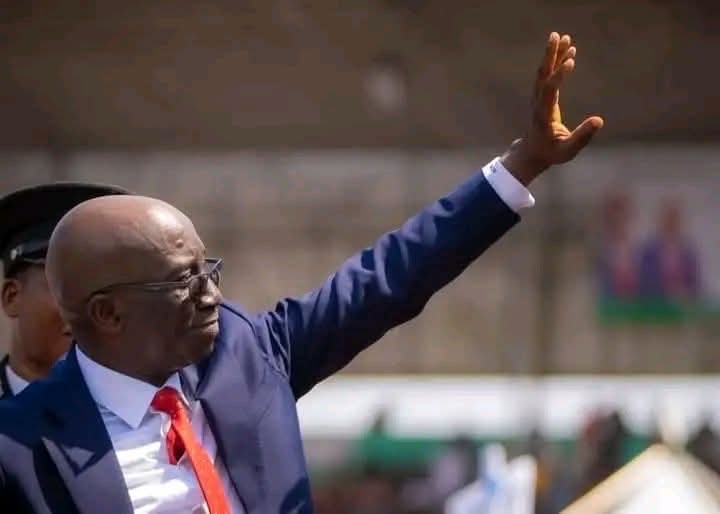The Federal Government recently reiterated its commitment to providing free instructional materials for basic education and the assurance elicited cheers from many parents and stakeholders.
The parents particularly heaved a sigh of relief, as the burden of combining the payment of school fees with the purchase of textbooks would be reduced.
However, that dream and enthusiasm seem to be waning, as there appears to be a huge difference between what is on paper and what is actually being done, especially in FCT schools.
The Universal Basic Education (UBE) Act of 2004, which makes provision for a nine-year basic educational programme, aims at eradicating illiteracy, ignorance and poverty, while stimulating and accelerating national development.
For reference purposes, the Federal Government recently approved the sum of N8.7 billion for the printing and distribution of textbooks for primary and junior secondary schools across the country.
On its part, the Federal Capital Territory Administration (FCTA) said that it distributed more than 1.3 million textbooks and instructional materials to basic education schools in 2013.
Just recently, the Minister of Education, Malam Ibrahim Shekarau, said that the Federal Government had sustained the distribution of instructional materials in the core subject areas.
He said that the subjects were English Language, Mathematics, Basic Sciences and Technology for Primaries 1, 2 and 3 pupils in public primary schools.
According to him, the pupil-to-book ratio of 1:1, as opposed to the earlier 4:1, has been achieved.
As good as these achievements in the implementation of the UBE scheme may sound; stakeholders in the FCT are singing a different tune.
Many of them decry the non-availability of the pledged free instructional materials and urged the FCT Universal Basic Education Board (FCT UBEB) to rise up to its responsibility by providing free instructional materials for primary and junior secondary schools in Abuja.
They say that the dearth of books in the schools has largely contributed to the declining performance of students in examinations.
A parent, Mrs Franca Odo, said that in spite of several promises regarding the provision of free instructional materials for students of public primary and junior secondary schools, parents in the FCT still bought books for their children.
She underscored the need for the government to be sincere in its implementation of the free and compulsory basic education programme.
Odo stressed that it was unfair to encourage parents to send their children to schools, in the guise of providing free education, only to exploit them.
“How can you improve the standard of education when the instructional materials are not there? How can a child who does not have textbooks cultivate the culture of reading?
“It is very sad that even when the inscription ‘not for sale’ is very visible on the books, students are still asked to pay for the books.
“All these stories about supplying free books to public schools are all lies; for three years, my children have not received free books, I buy their books,’’ she said.
Another parent, Mr John Ojogwu, said that those who introduced the policy of free basic education meant well, adding, however, that the programme had been sabotaged.
He called on the relevant authorities to investigate why the supply of instructional materials, which was already budgeted for, had not been forthcoming.
A policy analyst, who pleaded anonymity, said that the lull in supply was caused by FCT UBEB, alleging that it had not paid for the books it ordered since 2012 despite making budgetary provisions for them.
He said that publishers were made to organise a workshop for principals and teachers in junior and secondary schools of the FCT in 2012.
“They were asked to conduct a workshop which they did at their own expense; after this, FCT UBEB expressed its intention to procure books which the students would use for bi-weekly continuous assessment.
“But all these plans and evaluation of the students, which is essentially required under the current system of education, were not implemented till date.
“UBEB gave them the price and the quantity they needed; they got the books ready since 2012 and the books are still there; they are still in their stock.
“Meanwhile, the publishers took loans from banks and individuals to make the procurements and unfortunately, their money is tied down,’’ he said.
He said that the project was captured in the 2013 and 2014 budgets, adding that even though UBEB got N300 million for the purchase and supply of the materials, no procurement had been made.
Reacting, Mr Mohammed Lawal, the Head of Public Relations Unit, FCT UBEB, dismissed the allegations, insisting that the materials were supplied to the schools as and when due.
According to him, FCT UBEB has a Quality Assurance Department that monitors the supply and distribution of the materials to pupils and students.
He, however, conceded that he did not know if the suppliers of the materials were owed.
Nevertheless, Mrs Mohammed Lawal, the Principal of the Junior Secondary School in Area 10, Garki, declined to comment on the issue.
She insisted on getting a letter from FCT UBEB before she could answer questions concerning the supply and distribution of free instructional materials to her school.
All the same, perceptive analysts view the UBE programme as a good, purposeful policy which ought to be pursued with vigour, transparency and accountability.
They, nonetheless, insist that tangible efforts should be made to provide instructional materials for the students of primary and junior secondary schools, so as to facilitate their learning in a pragmatic way.

The Minister of Education, Malam Ibrahim Shekarau

